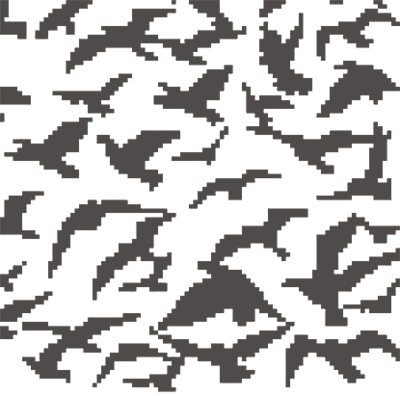Restrictions on assignment, and pledges on a set of receivables
In the contemporary practice of secured financing, the registered pledge on a set of movables or property rights is an extremely common form of security. This is a flexible instrument which at least in theory gives the financing parties a sense that they hold collateral in the borrower’s entire enterprise (apart from real estate, which cannot be encumbered by a pledge). But when taking security interests in property rights, it is necessary to consider various contractual or statutory restrictions on the freedom to assign rights.

The dormant foreign affairs pre-emption doctrine in the US and the EU
According to the American doctrine of foreign affairs pre-emption, in a federation the conduct of foreign affairs must be reserved for the federal government. If member states are allowed to pursue their own international agendas, it can embarrass the union and prevent it from speaking with one voice and from acting effectively on the international stage. Hence, member states should not only refrain from contradicting the federal government in international relations, but must not take any individual action in foreign affairs—even if the federal government remains silent on a particular issue of foreign policy. This negative aspect of the doctrine of foreign affairs pre-emption is called the “dormant foreign affairs pre-emption doctrine.”

Unauthorised payment transactions: The consumer is not always entitled to a refund
Banks’ liability for unauthorised payment transactions is one of the leading issues in the law of payment services. It directly affects the scope of protection of consumers using modern payment instruments. In an age of dynamic growth in electronic banking and a rising number of cyber offences, this problem takes on particular importance for users of payment services and for financial institutions.

Is service in a foreign army always grounds for loss of Polish citizenship?
There is growing interest in obtaining a Polish passport, as a document confirming citizenship of the Republic of Poland but also of the European Union. According to data from the Ministry of the Interior and Administration, 16,647 people obtained Polish citizenship in 2024 (up from 12,166 in 2023 and 7,960 in 2021). Thus the number (and duration) of administrative proceedings concerning Polish citizenship are also rising.

Law and democracy in an age of economic protectionism
How we treat foreign investors and traders in Europe is not just a matter of their rights. It is also a matter of our rights and interests. Whether we, as Europeans, can buy electronics from Chinese manufacturers is as much a matter of these manufacturers’ freedom to operate on the European market as it is a matter of our freedom to choose suppliers and to engage in trade with whom we want. Whether European contractors must compete with their Turkish counterparts for public infrastructure works in the EU is as much a matter of the Turks’ freedom to provide their services to European governments as it is a matter of our right to have our public funds spent efficiently. Obviously, these rights and freedoms are not absolute and can be limited for the sake of other important values. But the decision to do so is a consequential one.

Artwork restitution act: A necessary but insufficient solution
The Polish parliament passed the Act on Restitution of National Cultural Goods eight years ago, but the public is hardly aware of it. Nor is much known about how the act functions in practice. Nonetheless, the restitution of artworks remains a lively topic

A new approach to construction contracts
On 22 October 2025, at the Polish Chamber of Commerce in Warsaw, Prof. Piotr Machnikowski provided an overview of the work underway in the Codification Commission on new regulations for construction contracts. If the proposal becomes law, it will be a fundamental change for the entire Polish construction market.

Standing of acquirers of claims in consumer credit disputes (Court of Justice case C-80/24)
In disputes over consumer credit, banks deal not only with consumers but also with companies whose business is to buy up claims from consumers, including claims related to the sanction of “free credit.” But this procedure generates many questions. Can consumers sell their claims against the bank? If so, under what conditions can the acquirer pursue the claim before the court?

Can an institution demand repayment of EU financing years later?
Contrary to popular belief, funding institutions’ claims for reimbursement of EU financing are not eternal. The national and EU regulations provide certain timeframes beyond which the institution loses the right to demand return of the funds. More and more frequently businesses which carried out and accounted for projects years before, financed from EU funds, are now receiving demands to repay the funds, often in connection with irregularities uncovered in subsequent audits. Does the institution still have the right to demand repayment five, eight, or even ten years after the project is completed?

Report. Extradition cases in Poland 2022–2024
This is the first edition of a report devoted to extradition practice in Poland, in the years 2022–2024. For many months we collected and analysed statistics and decisions by the courts and prosecutors’ offices in extradition cases. Our aim was to form a picture of how this institution functions in practice.

What’s new in environmental law?
A lot has happened in the area of environmental law in Poland in the past few months. We have learned the levels of environmental fees for 2026 and the rates for fines for emission of excess noise for 2026. Proposals have been released for a new Act on Packaging and Waste Packaging and an amendment of the provisions on the operations of the Inspectorate for Environmental Protection. And work is now complete at the EU level on provisions for reducing food waste and for handling textile waste.

EPR for textiles, and combatting food waste
The amendment to the Waste Framework Directive extending the responsibility of producers of textile products, and also setting targets for reducing food waste, enters into force on 16 October 2025. Poland will have until 17 June 2027 to implement the new provisions. But businesses need to be prepared even earlier.
